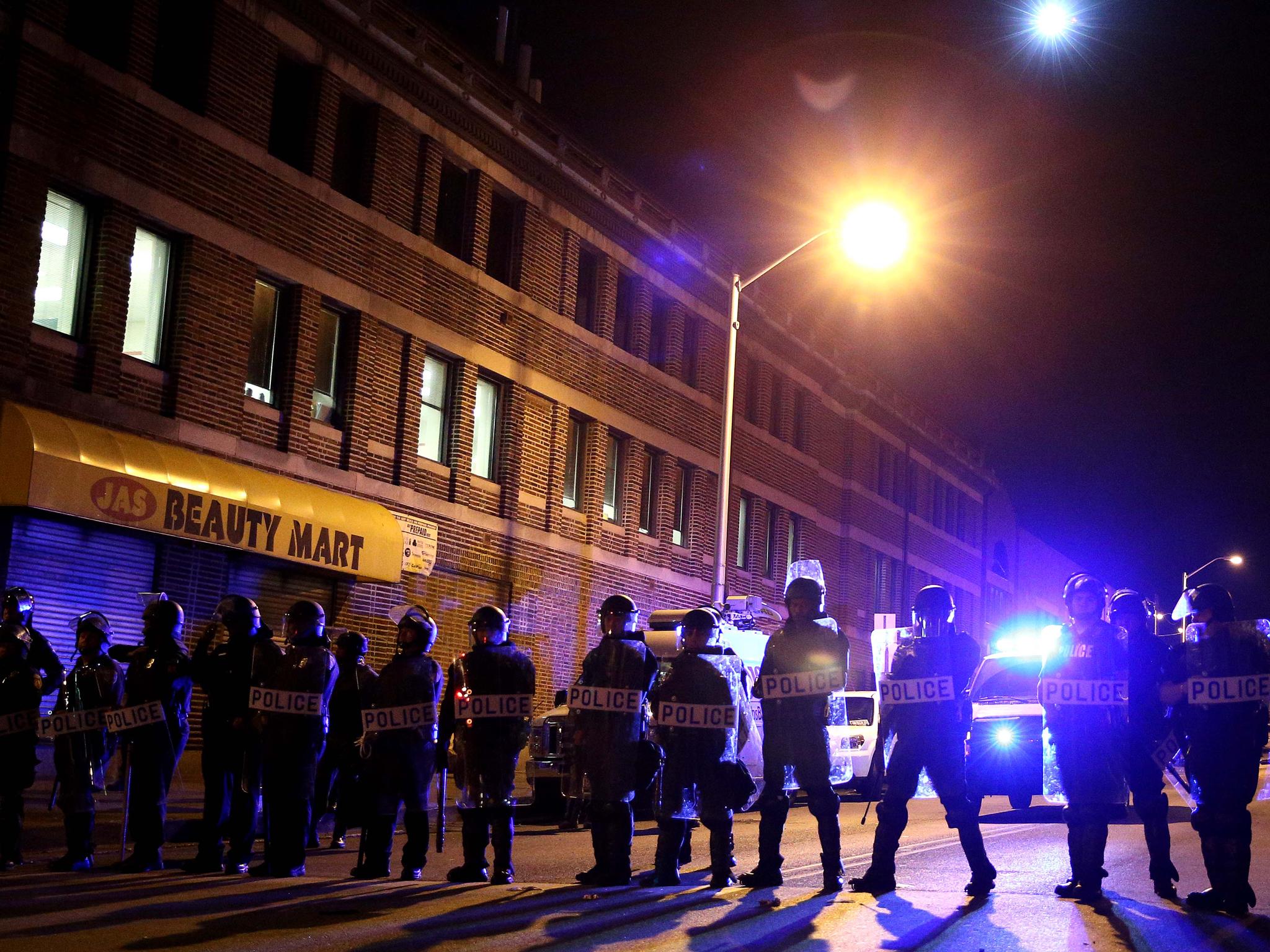New use of force policy for Baltimore Police labelled a ‘smokescreen’ and ‘talk’ by activists
'If you have a policing structure set up for police to police themselves, the community is not going to trust the policy changes that get produced.'

Baltimore Police unveiled a new use-of force policy that stresses “de-escalation” tactics and lists the “sanctity of human life” as one of its top priorities.
The guidelines, which are due to take effect on 1 July, come just ahead of the Department of Justice’s release of results from their investigation into the department, and a week after the acquittal of a police officer charged with the “depraved
heart” murder of Freddie Gray.
Mayor Stephanie Rawlings-Blake announced the new policy, saying that officers’ use of force is “one of the most scrutinised areas in policing, and it is incumbent upon the police department to ensure its officers are well trained and knowledgeable about the procedures when a decision is made to use force.”
The BPD use-of-force had not been revised since 2003, Police Commissioner Kevin Davis said at the press conference.
“So much has changed since then, and we’ve learned so much in the past 13 years,” he said. “It’s our duty and obligation as leaders to ensure our police officers are up to date with the latest best practices.”
But community activists do not necessarily see the new guidelines as true reform in the city where the relationship between law enforcement and the black community are fraught with tension and violence.
“It’s just a smokescreen to those who aren’t really affected [by BPD culture],” artist and activist Kwame Rose told The Independent. “Nobody who is affected by the culture of the Baltimore Police Department will see a change in policing.”
Mr Rose recalled a recent encounter with police on Monday during a community vigil for slain rapper Lor Scoota.
Hundreds of people gathered to mourn the death of the 23 year-old rapper, but were met with at least two dozen Baltimore Police officers donning riot gear prompting a tense standoff between the community and law enforcement.
“I think the Commissioner has good intentions, but he does not know what he does not know when it comes to race in this community,” said Lawrence Grandpre, director of research for the grassroots think-tink Leaders of a Beautiful Struggle.
Mr Grandpre expressed similar skepticism to the new use-of-force policy.
“Obviously [the policy change] is a step forward in terms of the police department trying to address glaring holes in how it structures policy,” the director of research of the grassroots policy think-tank Leaders of a Beautiful Struggle, Lawrence Grandpre, explained. “If you have a policing structure set up for police to police themselves, the community is not going to trust the policy changes that get produced."
David Rocah, senior staff attorney at the ACLU Maryland, told the Baltimore Sun that the revision still has “significant problems”. While officers will be required to file a report whenever they point their firearm or taser at an individual without firing, Mr Rocah says that similar forms are not necessary when deadly force is used.
“That’s critically important, and it’s hugely problematic that documentation doesn’t exist,” he said.
However, the true reform lies in the hands of the community, say both Mr Grandpre and Mr Rose.
Anything less amounts to nothing more than talk, Mr Rose said.
“In the talks that I’ve had with [Commissioner Davis] has been nothing more than talk. What we’d like to see as a community is action. We’d like to see community input,” he added. “More of the powers that be and of the police department actually listening to community members and not talking heads.”
Join our commenting forum
Join thought-provoking conversations, follow other Independent readers and see their replies
Comments
Bookmark popover
Removed from bookmarks